
Your local Meritus Gas Partners member company can help to select the ideal gas delivery methods for your gas supply needs. We offer a variety of options to choose from. Factors like demand, pressure, and phase requirements go into our gas delivery methods decision-making process. The location of your use point relative distance to our shipping location is also a consideration.
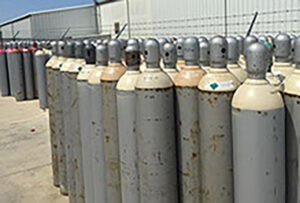
Steel and aluminum pressurized gas cylinders are used to store inert and oxidizing gases and working gases for use in a variety of industrial, commercial and personal applications. High pressure cylinders are available in volumes ranging from 10 to 420 cubic feet. 3500PSI and 6000PSI cylinders are available.
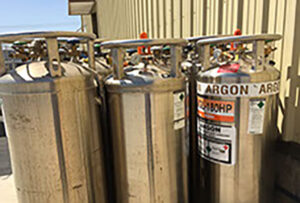
Liquid cylinders are storage vessels that are specially designed and manufactured to accommodate the super cooled materials that are utilized in a wide variety of cryogenic applications. Dewars are ideal for the supply of inert gases. They are perfect for higher volume demands with a need to be portable.
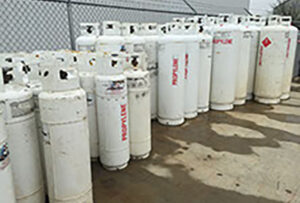
Steel low pressure gas cylinders are used to store acetylene, carbon dioxide, propane and working gases for use in a variety of industrial, commercial and personal applications. Low pressure cylinders are commonly used for flammable gases. They are available in volumes ranging from 10 to 330 cubic feet.
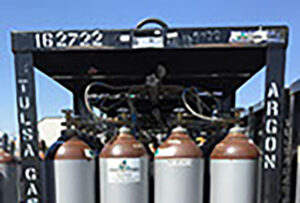
Cylinder banks are a cluster of high pressure cylinders bundled together on a pallet and connected to a common manifold. Used when high pressure and high volumes are needed. Commonly used in argon, helium, hydrogen, oxygen, nitrogen and mixed gas applications. Ideal for small purge jobs.
High pressure steel or composite tube trailers are perfect for high volume and high pressure applications. Commonly used with argon, helium, hydrogen, oxygen, nitrogen and mixed gas applications. Ideal for purge jobs and pressure testing.
Microbulk delivery is a process very similar to getting a home propane delivery. A storage tank is installed at your location. Our microbulk truck pulls up, hooks into the fill connection, and using metered delivery fills your tank. Microbulk is used in a wide variety of applications. Microbulk delivery systems replace high pressure cylinders or dewars, reducing cylinder handling and moving gas storage outdoors.
No longer do you have to wrestle around heavy high pressure cylinders or liquid cylinders. Microbulk replaces cylinders with a stationary tank. Microbulk systems provide you with the same benefits ofa bulk system, such as uninterrupted gas supply, in an economical package that suits your business needs.
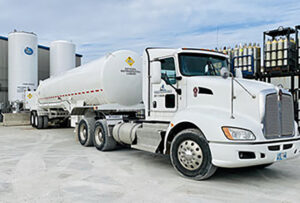
Bulk is the most economical way to buy large volumes of industrial gases. It minimizes the number of deliveries required to serve your account. Other benefits of bulk gas distribution are the elmination of: